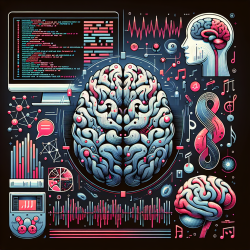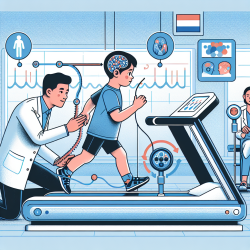Introduction
Deep learning, a subset of artificial intelligence, is revolutionizing the field of neurology by providing innovative solutions for complex medical challenges. The systematic review titled "Deep Learning and Neurology: A Systematic Review" highlights the transformative potential of deep learning in clinical neurosciences. This blog aims to help practitioners enhance their skills by implementing research outcomes or encouraging further exploration in this field.
Applications of Deep Learning in Neurology
Deep learning algorithms have shown remarkable success in several domains within neurology, including:
- Medical Image Analysis: Deep learning is enhancing the diagnosis of Alzheimer's disease and the early detection of acute neurological events through improved medical image analysis.
- Medical Image Segmentation: Algorithms are being used for quantitative evaluation of neuroanatomy and vasculature, providing more precise measurements and aiding in the diagnosis of conditions like gliomas.
- Connectome Mapping: Deep learning is aiding in the diagnosis of Alzheimer's, autism spectrum disorder, and attention deficit hyperactivity disorder by mapping brain connectivity.
- EEG Signal Analysis: Mining microscopic electroencephalogram signals is helping in the prediction and management of epileptic seizures.
- Genetic Signatures: Deep learning is being used to analyze granular genetic data, providing insights into the genetic basis of neurological disorders.
Challenges in Integration
Despite its potential, integrating deep learning tools in clinical settings faces several challenges:
- Data Volume and Quality: High-quality, labeled data is crucial for training effective deep learning models. However, healthcare data is often decentralized and complex, posing significant challenges.
- Generalizability: Deep learning models may not generalize well across different clinical settings due to variations in data characteristics.
- Interpretability: The complexity of deep learning models makes them difficult to interpret, which can hinder their acceptance in clinical practice.
- Legal and Ethical Concerns: Establishing standards for accountability and addressing potential biases in algorithms are essential for widespread adoption.
Future Directions
To overcome these challenges, interdisciplinary collaboration among healthcare professionals, computer scientists, engineers, legal experts, and ethicists is essential. Efforts should focus on improving data accessibility, enhancing model interpretability, and addressing ethical concerns. By doing so, we can fully realize the potential of deep learning to augment clinical decision-making and improve patient outcomes.
For practitioners interested in delving deeper into the research, the original paper "Deep Learning and Neurology: A Systematic Review" provides comprehensive insights and can be accessed here.










